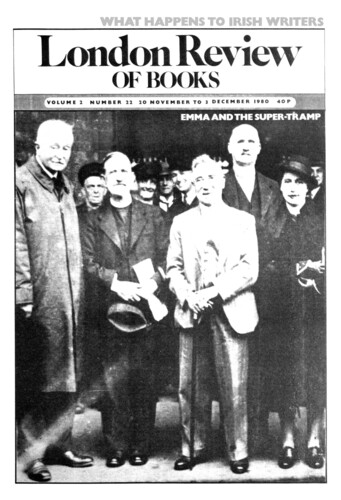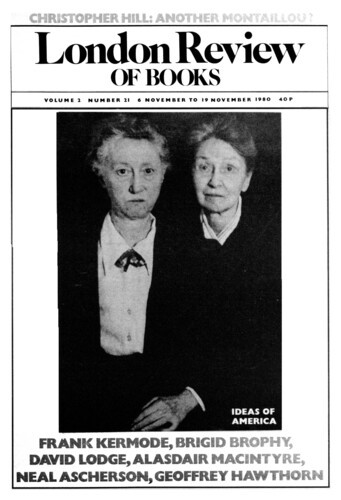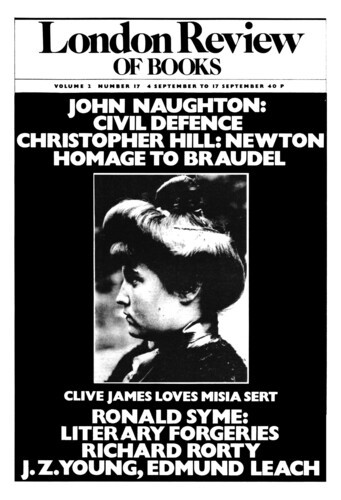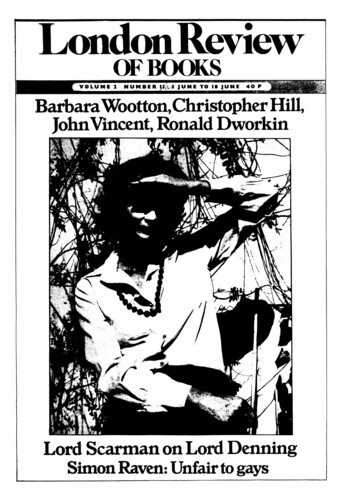In 16th-century England Protestant theology was overwhelmingly predestinarian. ‘Calvinist’ is the word normally used, but Dr Kendall, as we shall see, is unhappy about it. Bishops like Jewell, Grindal and Whitgift, Puritans like Cartwright and Perkins (though Dr Kendall would not call him a Puritan), later King James I, all agreed on the essentials of theology. This orthodoxy was challenged by Laudians in the 1630s, by sectaries in the Forties and Fifties. By the end of the century, Calvinism was no longer the intellectual force it had been. It was not stressed by the official Church of England, though the ‘Latitudinarians’ who came to dominate the Church had more in common with the earlier ‘Puritans’ than with Laudians. In the 18th century the ‘old dissent’, Presbyterians and Independents, was still mainly Calvinist, though Arminianism and Unitarianism were making inroads into their ranks. Calvinism survived among Particular Baptists and Muggletonians. It had ceased to be in the forefront of intellectual history. What had happened?
In 16th-century England Protestant theology was overwhelmingly predestinarian. ‘Calvinist’ is the word normally used, but Dr Kendall, as we shall see, is unhappy about it. Bishops...




